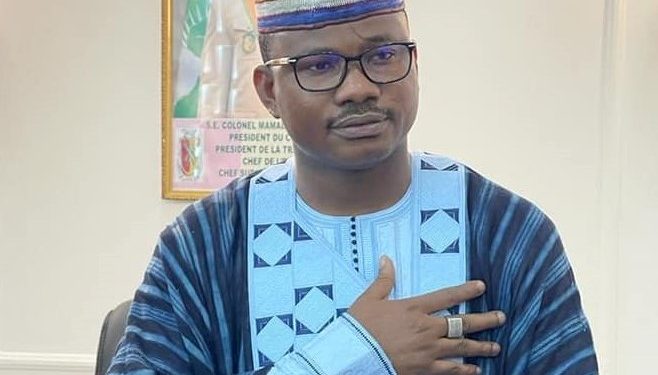Guinea’s junta government has inaugurated the National Transition Council (NTC), almost two weeks after it was constituted.
Junta leader and Transition President Col. Mamady Doumbouya presided over the inauguration ceremony which took place at the People’s Palace, the home of the country’s parliament.
The NTC is the last of the four organs of the transition administration as provided for in the transition charter unveiled by Doumbouya back in late January.
The other organs are the National Rallying Committee for Development (CNRD) junta, which is headed by Doumbouya; the president of the transition, head of state and commander-in-chief of the armed forces, who is also Doumbouya; and a government headed by a civilian prime minister.
The 81-member NTC will serve as the parliament in the course of the transition period. Its members were drawn from various interest groups in the Guinean society.
The Council is headed by a civil society activist, Dansa Kourouma who, until his appointment, was the head of the influential National Council of Civil Society Organizations of Guinea (CNOSC-G), one of several umbrella civil society organizations in the country.
Saturday’s occasion was graced by high profile Guinean officials and international dignitaries, including transition Prime Minister Mohamed Béavogui, the Speaker of Sierra Leone’s Parliament, Dr Abass Bundu, and the President of the National Council for Transition of Mali, Colonel Malick Diaw.
The formation of the NTC comes nearly five months after Doumbouya led a group of soldiers to oust former President Alpha Conde. The 83-year-old former president was flown to the UAE last month for medical treatment.
Conde became the first democratically elected president of Guinea in 2010. He was re-elected in 2015. His move to change the country’s constitution to allow him contest for a third term plunged the country into a political crisis, which culminated in the September 5, 2021 coup.
The junta has been under pressure from the Economic Community of West African States (ECOWAS) to conduct election and transfer power to a civilian administration.
ECOWAS, which had given the junta a six-month deadline to complete this transition, has since slammed the military leadership with economic sanctions. The sub regional group also threatened further actions if the transition government failed to meet its deadline.
At last week’s ECOWAS heads of state summit in the Ghanaian capital Accra on Thursday, February 3rd, they decided to maintain the sanctions and ordered the transition government to come up with a timeline for transition within the shortest possible time.
The NTC is a crucial organ of the transition in that it will decide on the date for all major activities leading to elections. It will also preside over the drafting of a new constitution, prior to conducting elections.
In his statement, the NTC president Dr. Dansa Kourouma appealed for both local and international support in Guinea’s journey to democratic rule.
“We must work night and day to be able to earn the trust of the people of Guinea. We will work transparently to provide Guinea with a Constitution that will be adopted and approved by the people of Guinea,” he said.
He added: “We count on the support of any international community, ECOWAS, African Union (AU), all sub-regional organizations but also and above all, the Guinean population. I appeal to all the socio-political and economic actors of Guinea to join hands so that this transition is the last in our country.”
According to Guinea’s Supreme Court President, Fodé Bangoura, the NTC’s mandate will end after the installation of the new National Assembly.






















